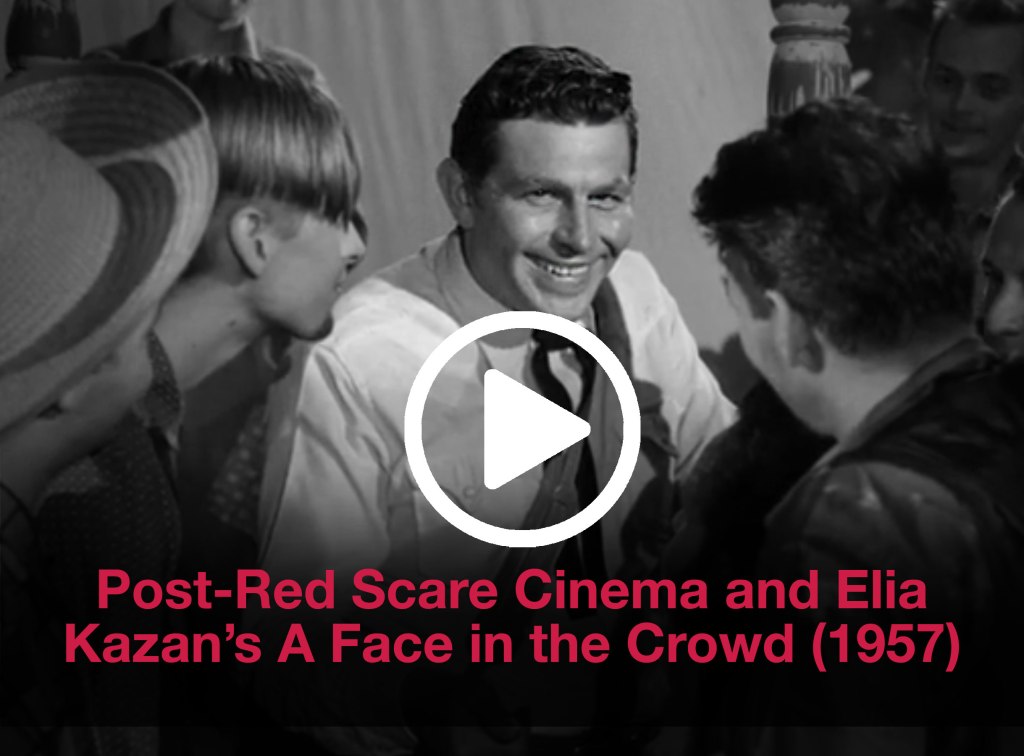A Love Letter to Tea & Sympathy (1956)
Star 80 (1983); The Nuance of an Portraying an Evil Character
At the time of this writing, Eric Roberts has 681 acting credits to his name, and that’s not including his 85 upcoming projects. The magnitude of Eric Roberts’ career should have made him a household name, yet few can name more than one of his films. The Dark Knight, The Cable Guy, Phat Girlz, Inherent Vice, the Stalked By My Doctor series, The Killers’ “Mr. Brightside,” and Mariah Carey’s “We Belong Together” music videos all have Roberts as the common denominator. He played a role in every single genre put to the screen. Until now, I’ve only known Roberts as Julia Roberts’ brother, Emma Roberts’ father, and a “failed actor” on his own. That is until I watched Star 80 (1983), directed by Bob Fosse and co-starring Mariel Hemingway. At the time of this writing, I’m obsessed with Eric Roberts. Not only is he a prolific star who has figured out how to become the definition of a “working actor,” but the man has tremendous talent. If Star 80 is the only proof he needs to verify that claim, then so be it.
I’m sure Roberts has career-defining roles and moments on screen that some devoted fan out there who has watched more than 0.5% of his filmography can point to, but my introduction through Star 80 is warranted. It’s not an easy movie to digest. Star 80 is a true crime drama depicting the rise and untimely 1980 murder of Playboy Playmate Dorothy Stratten (Hemingway) by her husband Paul Snider (Roberts). The gruesome story is doubly morally questionable by a script that unfolds from the perspective of Paul. We follow his journey as a two-bit hustler who serves as a Svengali to the naïve teen beauty, helping launch her into stardom as a model turned actress. Dorothy eventually meets director Peter Bogdanovich (who demanded his name be changed in the film) and decides to leave the insecure, emotionally stunted Paul. But she’s never given the chance. Paul ended both of their lives in a murder-suicide. Star 80 was released shortly after Stratten’s murder, a mere three years to be precise.
However, this isn’t an essay about the morality around the making of Star 80. This is about the finished product and its effect on this audience member. For Fosse’s final film before his death, the director embraced making a film that Roger Ebert called “devastating, violent, hopeless, and important.” Fosse’s camera work captures a mix of gentle tenderness with genuinely terrifying moments. There’s a thick layer of tension lining the film from the moment the story begins. And while the feeling of rigid dread permeates the film, there’s a palpable restraint in Fosse’s approach to this story. We’re dragged into the depths of venomous despair the minute we meet we meet Paul. Our only saving grace from the bleakness is Dorothy. Though we watch Dorothy navigate a world of vultures that feed off innocence and obsess over vanity, she’s written with silent strength and agency.
Paul alternatively proves to be the biggest vulture. He’s an insecure low-life chasing more than the American dream. He’s chasing validation and self-love from external factors. He cannibalizes media to regurgitate superficial pieces back to strangers for approval. Therefore, Dorothy is incapable of giving him anything because what he wants must come from within. Paul is dangerous because he doesn’t grasp how empty he is inside. Fosse’s script could have been a simplistic story of how this man let his emptiness and jealousy lead him to murder, but Fosse resists. He instead gives audiences a rather tender drama about the breakdown of a marriage marred by obsession and envy.
Roberts’ strength here is that he doesn’t approach the role with a one-note villainous slant. He brings a gentleness to Paul, enough to make sense of why a kind, naïve soul like Dorothy would have fallen for him. Roberts delivers his performance with instincts of loving kindness and bitter rage. Roberts’s Paul is a pathetic, small man that we pity. But just because we feel those complicated emotions doesn’t mean we align with his character in any way. Fosse’s script and Roberts’ portrayal are too intricate for that. Dorothy is first and foremost the main character, and Hemingway delivers a stellar performance that demands empathy and bearing witness even when all we want to do is look away.
I have been mesmerized by Roberts and Hemingway’s performances since first watching this film a month ago. Perhaps Fosse’s career as a dancer, choreographer, and director of musicals gave him an advantage when it came to directing his actors in Star 80. Body language plays a major part in how Hemingway and Roberts play off each other and present themselves to the camera. This is a testament to the script’s foresight, as Paul often tells Dorothy, and later her younger sister, to straighten up when they walk to affect how they appear to others. Nevertheless, Roberts’s skill as an actor made him aware of how to use his body throughout the film. In a 2023 interview with Adika Live!, Roberts recalled taking inspiration from an assortment of Los Angeles dwellers but primarily from Fosse himself, even imitating his walk.
Roberts makes this terrible character charming and worthy of pity. He obscures how audiences should feel, an element of art that has all but disappeared in today’s climate. Writer Soraya Roberts reflected on this very notion in her critical analysis of Martin Scorsese’s Killers of the Flower Moon for Defector. In the piece, she reflects on art’s current reliance on “prescriptive morality,” where art has turned into telling audiences what’s morally good before we have the chance to evaluate it ourselves. We’ve come to value a film’s worth based on its morals and not on its aesthetic qualities. I argue that this is the very reason why Star 80 and Roberts’s performance aren’t lauded by newer audiences.
But I understand the resistance to embracing a film like Star 80. Unlike a modern-day counterpart like Paul Thomas Anderson’s Boogie Nights, Star 80 doesn’t end with hope. We know things won’t end well. Fosse reminds us of this in the opening moments of the film, and we see it in flashbacks when Paul’s venomous hate and rage spill out in soliloquies. Though these moments are the film’s weakest, they remind us whose perspective we’re tied to, which is not only Paul’s but the men who surrounded Dorothy, including Playboy magnate Hugh Hefner. Fosse portrays Hefner as a “father figure” to Dorothy, despite accounts that he sexually assaulted her. This is no doubt in part because of Playboy’s momentous status during the 1980s.
Star 80 is a story based on sensationalism; a deeply American sentiment seen in our desire to latch onto true crime stories that feed our negative biases against one another. Nevertheless, I’m much more interested in the conversation around feelings of ethical ickiness that come with movies like Star 80. Roberts as an actor gave audiences a multifaceted character. He shines with likability even though he proves to be a monster. Scorsese expressed similar sentiments when he described his latest film’s main character Ernest: “…He’s weak, and he’s dangerous, but there’s still love there. And that’s kind of disturbing but, at the same time, it’s human. It’s what we are.” Roberts in Star 80 is repulsive and yet charming because he’s human. He possesses a weakness of character that’s rare to see in art anymore, and for that reason alone, I can’t get this movie out of my head.
A Rambling on the Social Power of Films and How We Learn to Read Them
How language constructs thought and film canon
I sobbed in hope, despair, and admiration after watching Salt of the Earth the other day. Though I’d know about this film for years, it was the type of film that needed to cross my path exactly when it did. Salt of the Earth is a 1954 independent feature about the lives and struggles of Mexican American miners that go on strike when their rich, white bosses refuse to ensure their equality or safety. The film was blacklisted upon release and denounced by the federal government of America. It was virtually blocked from being shown to the public, and what a travesty? Salt of the Earthis pro-labor, pro-communism, pro-feminism, and a film that’s meant to remind audiences that the road to revolution is paved in hard turns, long miles, and danger. But to seek revolution, the road must be traversed.
I had been thinking earlier that day about how a society upheaves a corrupt, neo-liberal capitalist system. My American side kicked in: “But wait,” I debated with myself, “Is revolution and violence really the answer? Is that really the only way to take back power as the people?” Then, my dear friend Eve popped in my head. This person will only be referred to as Eve for their safety. Eve is a gay, revolutionary, Turkish-born Kurd, living abroad. English is Eve’s second language, and I met them while learning French—my second language, their third— in Paris. We both went to the same school, had the same stresses, the same sadness about the world, the same carefree spirit, the same tender hearts, the same fantasies about a world of equality. We were also much more different than we were alike. Oil and water, me and Eve, and it made for a powerful friendship that was transformational for the both of us.
My E-v-e-oil would always respond to my pacifism with heat. They’d tell me, respectfully, that I was brainwashed by a nation-state that is corrupt all the way down to its very nascence. The United States. States. Nations. They’re all meant to control the people, and the hands moving the pieces are corrupted elite. The bourgeoisie. It was all the things I knew to be true, but it was harsh to hear from someone who had never even been to America. We argued about that too. I constantly had to break down Eve’s stereotypes, assumptions, and negative biases against America and its people. It’s a shitty house, but it’s my house, buddy. But, because I pride myself on attempting to maintain emotional maturity and level-headedness in life, I never took Eve’s digs or hostility in an argument personally. Neither of us did. We had so many difficult conversations for the first time with each other. We both learned a new level of emotional maturity and open dialogue. It was truly special.
Now, Eve and I didn’t just talk about the KPP party, and Frantz Fanon, and misogynoir, and the Parisian banlieues, identity and ethnicity, and Berbers. We talked about movies, all the time. We both sat through the same poorly taught film courses in our graduate program, and we’d spiral far too often talking about how we facetiously threw away money on a fake masters. We saw so many movies in the coolest Parisian theaters together. (And let me tell you, French theaters are only “cool” figuratively. I’ll write up an essay one day about getting fooled twice on the hottest days of the year with no A/C.) On one particular occasion, I invited, ok practically begged, Eve to come to either the Cinema Christine or Le Champo to see a classic Hollywood movie with me. Eve has great taste in cinema and is a stunning filmmaker, so I was thrilled to introduce them to not just any old, black-and-white film, but one of the greatest films old Hollywood has to offer: Casablanca…
My Week at the Cannes Film Festival ✨

The Cannes Film Festival is one of the most magical experiences I’ve ever had. Granted, I’ve never been to Disney World, but I’m pretty sure it’s on par with Cannes. I was able to attend as a “film professional,” a pass that helped rejuvenate my confidence during this stressful, soul-crushing time of finding a job that aligns with my passions and morals. Although Cannes is two weeks long, I experienced it for five days. Of the entire festival, I explored maybe 30% and had access to probably less than that. Award shows, galas, yacht parties, flowing champagne, caviar on crackers, hobnobbing with notable faces – that’s all saved for badge access that my friends and I couldn’t figure out for the life of us. That’s probably because the festival has an air of secrecy to it. Those higher-tier badged people didn’t even cross our paths, even when we tried to force it by going to Carlton for dinner to network. There, I witnessed my friends comically astounded that they just paid 24 euros alone for water. (They forgot to heed my warning to always order “une carafe d’eau” in France).

Cannes’ exclusivity is felt even while present at the festival. We were finding out the winners, guests, and news in real-time with the public. I waited in line for two hours in hopes of getting in the door of Quentin Tarantino’s Q&A and learned with everyone else through Twitter that he was showing “Rolling Thunder” (1977). The only news I received before the public was that all of us waiting in line should just give up because the theatre was full. At Cannes, there are gates on gates, winding lines, packs of security, and badge beeps every step of the way. But honestly, that was sort of the fun part. It was thrilling when security would look at our badges and nod yes. It was even more satisfying when our badges proved worthy enough to allow us the unexpected pleasure of walking the red carpet into the Grand Lumiere for Robert Rodriguez’s “Hypnotic” (2023).

Cannes’ grand, bureaucratic system is complex, but it basically provides pass holders with a curated experience of the festival. We got to log in to reserve tickets for separate screenings daily at 7am. So, every morning for five days before the festival, I woke up before 7am to reserve whatever tickets I could, then desperately tried to go back to sleep. This was foreboding that sleep is not a priority during Cannes. However, one friend in my trio also had a pink “film professional” badge but it was tiered differently. This friend is a student filmmaker getting her MFA, but she had to wait until 9:30am to reserve her tickets. By that time, mostly only student shorts or short documentaries remained available. But it all worked out. She loved her track and enjoyed the shorts, as they inspired the work she’s currently doing. My producer friend and I relished the early premieres, and we all had a blast!

Five days aren’t enough to network and schmooze like I thought it would be. Cannes is still a very French festival and people have places to be. I didn’t see much friendly random banter among pass holders in line, but we still met kind, helpful patrons. I was lucky enough to see about 15 short films and features. Some I watched for a few minutes at the open-air beach screenings, which was spectacular! Watching a movie while digging your feet into the sand and feeling the breeze of the ocean on your face felt like a gift from the gods. Overall, I saw some fantastic films, and I saw some terrible ones. But all in all, I had one of the greatest experiences of my life, and Cannes inspired me on so many levels. I’m ready to leap into the next phase of my career, whatever it may be, and get myself back to Cannes annually on an exponentially higher tier badge.
For details on what films I saw, check out my letterboxd list and read my reviews: https://letterboxd.com/toyiah/list/i-cannes-and-i-did-23/

That Time I Wrote a Book! 📚📖
I am thrilled to announce that I am now a published author! My very first book TCM Underground: 50 Must-See Films From the World of Classic Cult and Late-Night Cinema is out on October 25th in stores wherever books are sold. This has been a labor of love undertaken in the midst of the pandemic, during my move to Paris, and during the start of getting my masters in film studies. Thank you all for supporting me as a writer and all-around movie nerd for all of these years! I’m extremely honored to be a published author, alongside TCM programmer and podcast host Millie de Chirico, and to bring you all 50 films that we love and cherish. Follow me on Instagram for updates and information. Pre-order your copy today!












